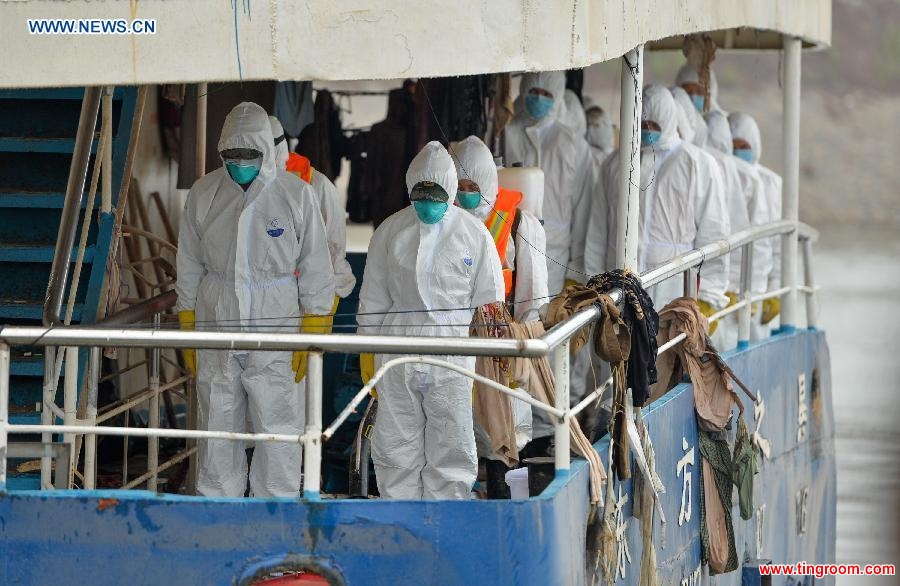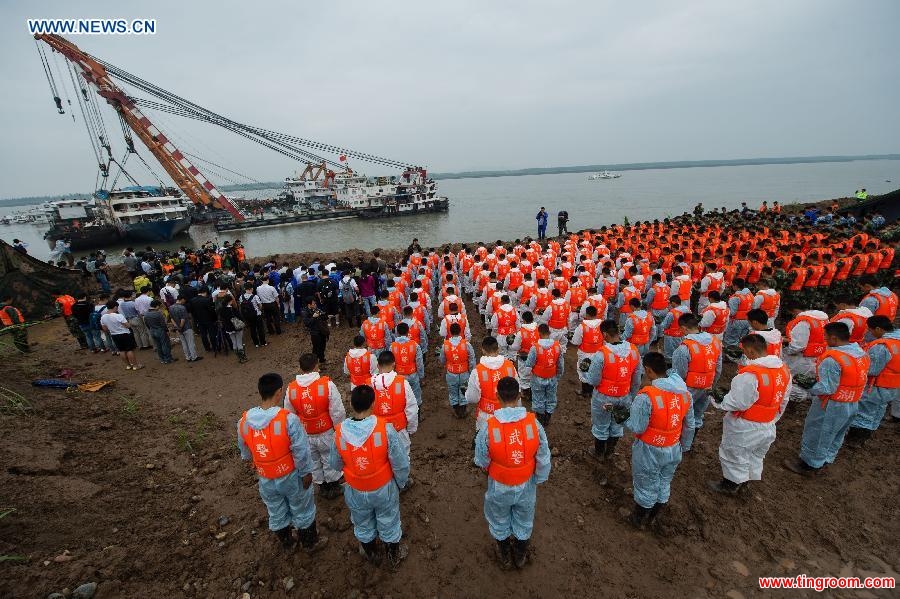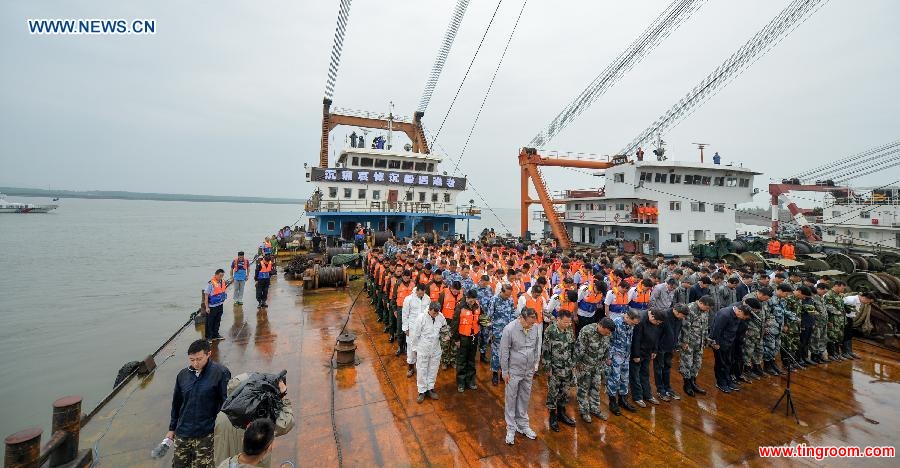CCTV9英语新闻:第七天举行哀悼仪式
(单词翻译:单击)
According to Chinese tradition, the seventh day after one's death is an occasion for the relatives of deceased to mourn the passing of their loved ones. At the site of the Eastern Star capsizing, a ceremony was held Sunday to mourn the victims in the disaster.

A mourning ceremony is held for 406 deceased people on the capsized ship Eastern Star at the sinking site in the Jianli section of the Yangtze River, central China's Hubei Province, June 7, 2015. (Xinhua/Bai Yu)
Mourning those who were lost. A memorial service was held on the deck of a command ship near where the tragedy took place. Soldiers, government officials, volunteers, and family members all paid their respects. Huge amounts of luggage sitting on the ship's deck, waiting to be allocated to family members. For family members, the grief is overwhelming. And yet they try to carry on.
In northeast China, the Tianjin government held a group mourning in a hotel in Jianli, gathering all the family members of 78 victims from the city.
"We set up a Wechat group with all the family members of victims to release the latest information on the rescue process and other arrangements," said Gao Jianjun, official of Tianjin government.
Chinese Vice Premier Ma Kai visited families of the victims in Jianli County on behalf of President Xi Jinping and Premier Li Keqiang.
Ma expressed his condolences, and promised to spare no effort in searching for those who are still missing.

A mourning ceremony is held for 406 deceased people on the capsized ship Eastern Star at the sinking site in the Jianli section of the Yangtze River, central China's Hubei Province, June 7, 2015. (Xinhua/Li Xiang)

A mourning ceremony is held for 406 deceased people on the capsized ship Eastern Star at the sinking site in the Jianli section of the Yangtze River, central China's Hubei Province, June 7, 2015.




